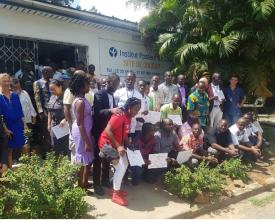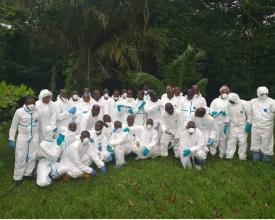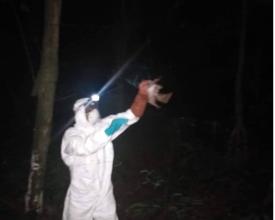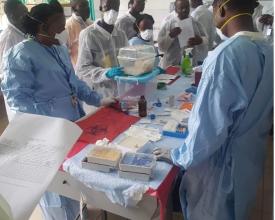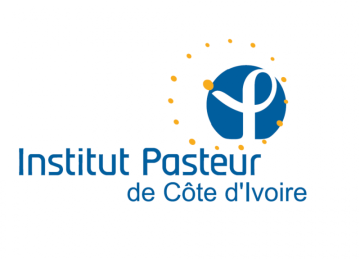
Fortalecimiento de la capacidad de los países para la vigilancia de las enfermedades de la fauna silvestre
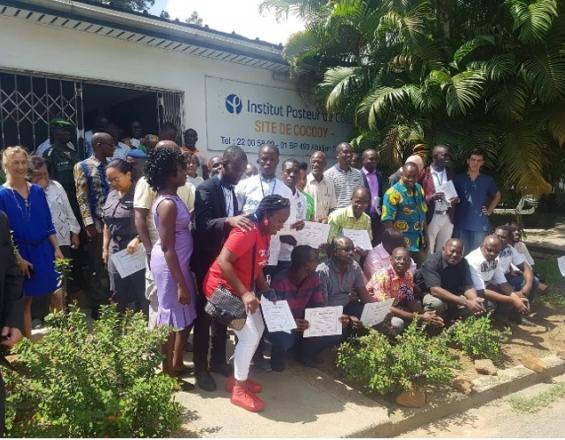
En el marco del proyecto PREDICT-2 Liberia, se formó a un equipo sobre el terreno en materia de vigilancia de patógenos en la fauna silvestre, incluida la captura, retención, muestreo y liberación de animales en condiciones seguras y humanas, así como la cadena de frío de las muestras, el transporte, la bioseguridad y el uso de equipos de protección individual (EPI). Este equipo pasó a muestrear más de 5000 murciélagos y varios cientos de roedores para aumentar la comprensión de los patrones de circulación viral en África Occidental, incluido un enfoque en el virus del Ébola. En 2019, los socios gubernamentales de la vecina Costa de Marfil expresaron su interés en fortalecer la capacidad de vigilancia de la vida silvestre. Para apoyar el desarrollo de esta capacidad, los equipos de PREDICT Liberia y Costa de Marfil codirigieron una capacitación en el zoológico de Abiyán en junio de 2019, con los instructores del equipo de Liberia proporcionando capacitación práctica en muestreo de murciélagos y roedores.
Impactos
Se formó a un total de 50 participantes de instituciones gubernamentales de Costa de Marfil (incluidos los servicios de salud pública, fauna salvaje y veterinaria). Además de las prácticas específicas de muestreo y manipulación, se trataron temas más amplios como el equipo de protección personal y el bienestar animal en el proceso de muestreo, todos ellos basados en rigurosas directrices mundiales elaboradas por el proyecto PREDICT. Esta formación aplicada se benefició de formadores conocedores de las condiciones sobre el terreno, incluidas las infraestructuras y los factores y especies medioambientales de la región. Las barreras lingüísticas se evitaron gracias a la participación de personal técnico nacional e internacional que dominaba el inglés y el francés. Todos los miembros del equipo colaboraron para que la formación fuera un éxito, incluidos los conductores del equipo de Liberia responsables del transporte a Costa de Marfil. La formación reforzó el valor de los enfoques de formación de formadores. En Liberia, el equipo había recibido una amplia formación sobre los protocolos PREDICT por parte de veterinarios internacionales especializados en fauna salvaje, convirtiéndose en el primer personal liberiano formado en la vigilancia de patógenos en la fauna salvaje. Su trabajo condujo a la primera detección del ebolavirus del Zaire en un murciélago en África Occidental. La formación reforzó el orgullo del equipo de Liberia por sus habilidades y mostró la utilidad de la colaboración entre países en la detección regional de enfermedades.

